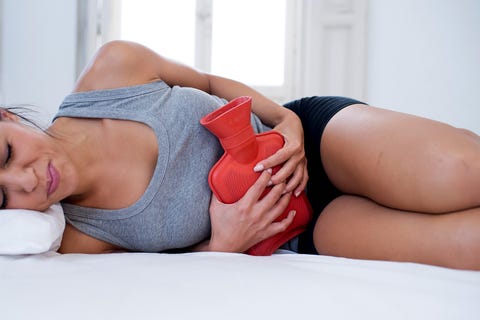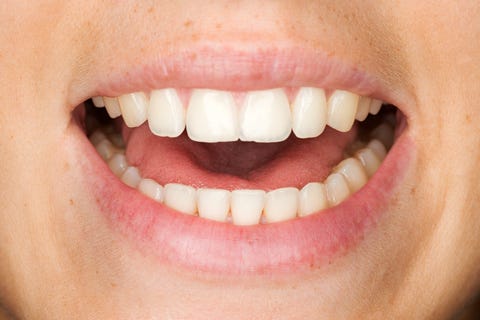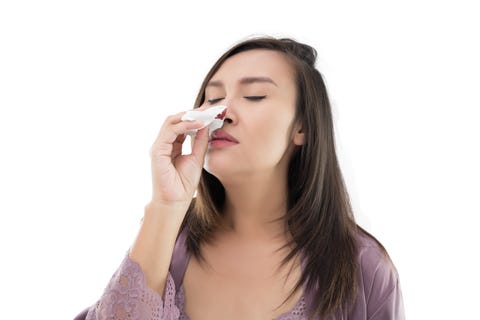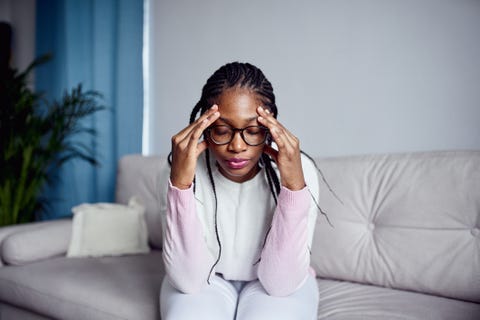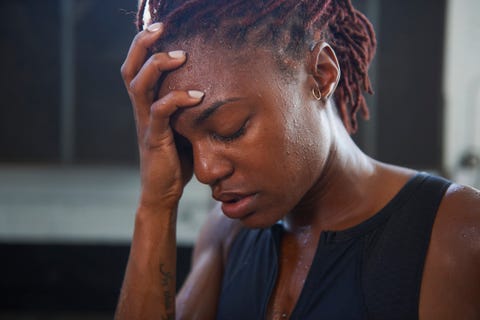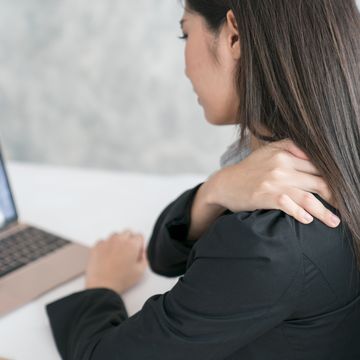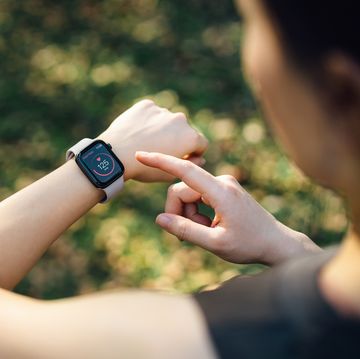10 Lexapro Side Effects In Women You Should Have On Your Radar
Yes, it can cause weight gain.

Starting medication for your mental health can feel like a big change, but prioritizing your well-being and getting the proper care is important. One often prescribed to treat depression and anxiety is Lexapro. And tons of people are seeking help—46.2 percent of U.S. adults with mental illness received treatment in 2020, per the National Alliance on Mental Illness. Still, you may be nervous about how your body will react, but knowing what to expect and the possible Lexapro side effects in women can ease some of your worries.
First off, the basics: Lexapro is an antidepressant approved to treat major depressive disorder and generalized anxiety disorder, says Judith Kastenberg, MD, a psychiatrist at Corporal Michael J. Crescenz Department of Veterans Affairs Medical Center. It is a type of selective serotonin reuptake inhibitor (SSRI) and works by restoring the balance of serotonin in the brain. Having a higher level of these neurotransmitters helps reduce symptoms and increase your mood.
As helpful as it is, Lexapro does come with "a long list of side effects,” says Susan Anderson, MD, a psychiatrist with NorthShore University HealthSystem. “I’ve had patients say they don’t even want to look at the long list [of potential side effects] because they feel they have everything described."
But don’t let that scare you off because while about 60 percent of patients say they had at least one side effect when taking an antidepressant, Lexapro (the generic name: escitalopram) was among the most tolerable SSRIs, one study in 2014 found.
If you do experience side effects, though, most mild symptoms tend to go away after a few weeks once your body adjusts to the medicine, says psychiatrist Jack Drescher, MD. However, if side effects become persistent, continue to get worse, or become unbearable, talk with your doctor about the dosage. “I always start people at a low dose, so if they are going to have side effects, hopefully it's a low amount and they can see what happens in the first week or two,” says Dr. Kastenberg. It’s also helpful to ask your doctor, “What should I do if I have questions after I leave the visit?” says Dr. Anderson.
Here are side effects to look out for and when you can expect symptoms to go away, according to psychiatrists.
Meet the experts: Judith Kastenberg is a practicing psychiatrist and an assistant clinical professor of psychiatry at the University of Pennsylvania. Susan Anderson is a psychiatrist with NorthShore University HealthSystem. Jack Drescher is a psychiatrist and the past president of the Group for the Advancement of Psychiatry.
Andi Breitowich is a Chicago-based writer and graduate student at Northwestern Medill. She’s a mass consumer of social media and cares about women’s rights, holistic wellness, and non-stigmatizing reproductive care. As a former collegiate pole vaulter, she has a love for all things fitness and is currently obsessed with Peloton Tread workouts and hot yoga.
Watch Next

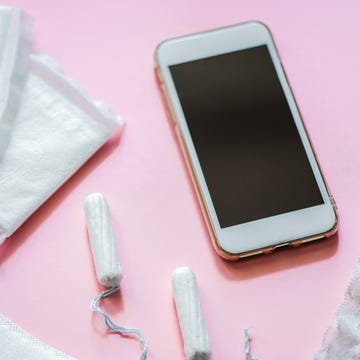
Why Your Period Is Suddenly Shorter Than Normal

5 Benefits Of Cranberry Juice

How Can I Make Myself Pee?

9 Surprising Health Benefits Of Turnips

